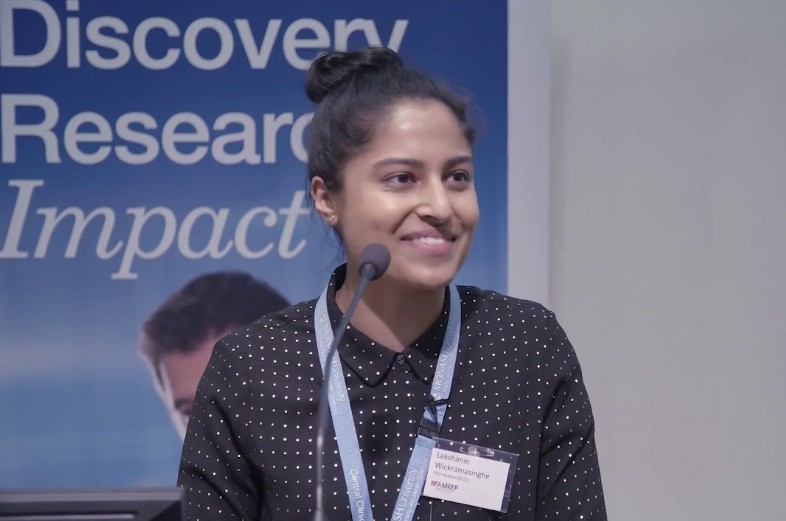August 2020 Encouragement Award winners
ATA Scientific would like to thank all those that participated in our August 2020 Encouragement Award promotion.
Funding Research amid the COVID-19 Pandemic
Given the COVID-19 pandemic has upended nearly every aspect of life this year, we decided to focus our August competition on the importance of consistent funding for scientific research. Multiple sources can confirm that Australian spending on research (including government and industry) has declined over the last few years. This is only expected to fall further as Governments face huge economic downturns following lockdown. Most research facilities not involved in vaccine development may not be high on the list of funding priorities, but the COVID-19 pandemic may provide a unique opportunity to fundamentally rethink the priorities of economic policy.
We asked our participants to compose a letter to the Federal Treasurer outlining what they believe are compelling reasons to provide significant ongoing funding for Science education and research.
OUR WINNERS
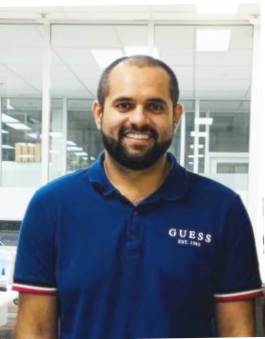 Three entries were selected to receive our award– first prize at $1500 and 2 runners up at $600 each.
Three entries were selected to receive our award– first prize at $1500 and 2 runners up at $600 each.
Congratulations to our first prize winner, Dr Tushar Kumeria, from the University of New South Wales (UNSW), School of Materials Science and Engineering.
Tushar recently moved from the University of Queensland to take up a position as Scientia Senior Lecturer in the growing field of Biomaterials. His current research and teaching focus is on porous nanomaterials and composites for drug delivery, sensing, and tissue engineering. Tushar is an Early Career Researcher funded by NHMRC and ARC. His projects interface novel materials with biology to create advanced nanomedicine and biosensing tools.
“As an academic with international experience, my long-term career goal is to create new materials and devices for biomedical applications, promote STEM education, and train the future generation of researchers”.
Tushar would like to use his award to purchase small tools for a new lab in progress at UNSW.
“I’ve seen drastic reductions in my startup-funds (more than 50 %) due to COVID-19. The small tools from this award will help me set up two optical sensing rigs that will be useful in the development of smart optical sensors using our porous photonic crystals”.
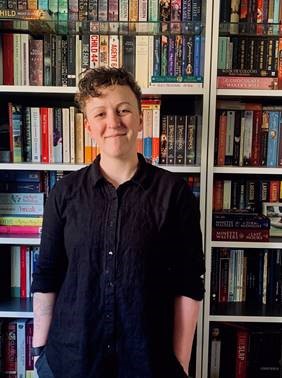 Congratulations to our runner up, Jasmine Francis, PhD candidate at RMIT University, Department of Biotechnology, working under the supervision of Prof Peter Smooker.
Congratulations to our runner up, Jasmine Francis, PhD candidate at RMIT University, Department of Biotechnology, working under the supervision of Prof Peter Smooker.
Jasmine’s PhD project is focussed on the development of lipid nanomaterials for DNA vaccine delivery, with a particular emphasis on nanoparticle-based adjuvant strategies. DNA vaccines are a promising vaccine strategy which involves using host cells to express vaccine antigens, which reduces the cost and time required for vaccine development. Jasmines’s PhD has involved the development of a novel adjuvanted lipid nanocarrier for a DNA vaccine against a human gastric pathogen, Helicobacter pylori, which infects approximately 50% of the global population and is the only human pathogen classified as a carcinogen by the World Health Agency.
I am very grateful for this award which I plan to use to purchase a FlowJo software subscription to perform flow cytometry analysis from home during COVID-19 restrictions, which will significantly improve my research capabilities during this lockdown”.
Outside of her research, Jasmine has a strong interest in science and technology policy in Australia, and advocacy around diversity and inclusion in STEM.
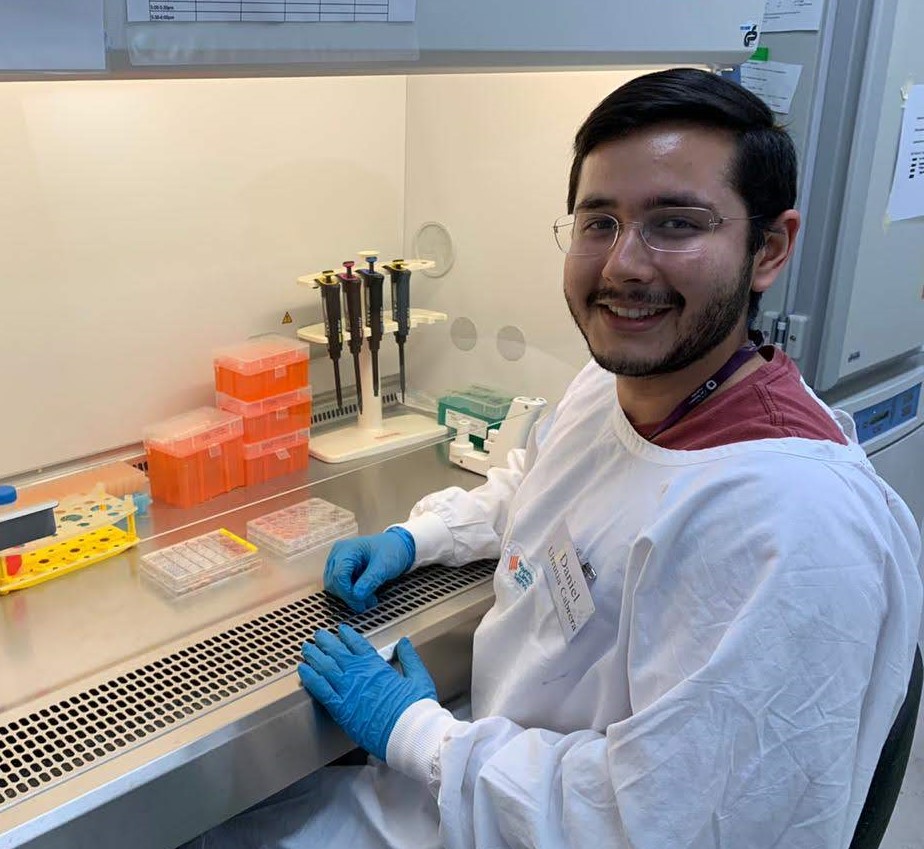 Congratulations to our runner up, Daniel Urrutia Cabrera, PhD candidate from the University of Melbourne, Centre for Eye Research Australia working under the supervision of Dr Raymond Wong. The research group is working to unravel the mysteries of the retina and develop treatments for eye disease using cellular reprogramming and stem cell technologies.
Congratulations to our runner up, Daniel Urrutia Cabrera, PhD candidate from the University of Melbourne, Centre for Eye Research Australia working under the supervision of Dr Raymond Wong. The research group is working to unravel the mysteries of the retina and develop treatments for eye disease using cellular reprogramming and stem cell technologies.
Photoreceptors are light sensing neurons within the retina essential for vision. Therefore, the damage to these cells has a severe and irreversible impact in the quality of vision and can even lead to complete blindness. Currently, there are no effective treatments to restore vision once the photoreceptors are lost.
Daniel’s project aims to regenerate the lost photoreceptors to restore the affected vision. In particular, Daniel provokes a supporting type of cells within the retina with stem cell characteristics, called Müller glia, to transform into new photoreceptors. He employs a variation of the CRISPR technology, called CRISPR activation, to switch on specific genes that would enable the reprogramming of an already established “cell identity” into a photoreceptor.
“I hope that my project could someday improve the lives of patients with impaired vision.”
We would like to thank all those that participated. The next Encouragement Award will be posted on our website soon.
For more information or to stay informed of other upcoming promotions please ‘Like us” on Facebook or contact us.
———————————————————————————————————–
Winning entries are below
Federal Treasurer of Australia,
Re: “Jobs of the Future” Depend on Education and Research Funding Today.
Dear Treasurer,
I want to start this letter with a statement from Prof. Mark Biggs (formerly, Head of School of Chemical Engineering, University of Adelaide) that has stuck with me since the early days of my PhD “We cannot prosper as a society by digging and exporting our dirt (mineral and ores) for too long. Wealth comes from here (pointing to his brain) and not from the ground”. This statement underpins the importance of education and research for Australia.
Advanced economies like the Israel (4.8 %), Korea (4.2 %), Germany (3.0 %), USA (2.8 %), and others invest heavily (more than the OECD average; 2.34 % of GDP) in education, and research and development. While Australia spends considerably less, only 1.79 % (2017 data) of the GDP. A further reduction in these number would mean flight of talent to other countries and further loss of high-skilled job in addition to the already 7700 research jobs that are under threat at Australian universities due to the loss of revenue because of COVID-19.
In the long-term, rapid developments in machine learning (ML) and artificial intelligence (AI) threaten loss of millions of low-skilled jobs (e.g. driving, data analysis, etc.) in the next decade. Unlike the technologies of the past that created more jobs than they destroyed, AI- and ML-based smart and self-learning technologies will create considerably less jobs. To prepare our economy and society for the changes brought upon by AI and ML, we need to prepare our future generation for the “Jobs of the Future” by investing heavily in the STEM education that will result in new innovations and high-tech jobs. Our ally countries like the USA, Korea, and Japan, through heavy investment in education and research over the last century, have created an ecosystem of innovation and entrepreneurship. More recently, the world has observed China to become a leader in complex high-technologies and manufacturing through continuing investment in education and research, and now challenges countries the USA and Germany in innovation and entrepreneurship. This is also recognized by Australian Parliament with statement “There is a high correlation between the wealth of nations, in terms of Gross Domestic Product (GDP), and R&D intensity (R&D/GDP)”.
Being an early career researcher (ECR) who just started a new position (8/06/2020) at UNSW in the middle of this pandemic, I’ve seen drastic reduction in my research funding. Like me, many other researchers rely on funding from the university and government for their cutting-edge research and training the next generation of leaders. It is scary to imagine more cuts in education and research funding by the government, under current times when Industrial funding is a the all-time low. Australian R&D, despite years of funding reductions, returns as high as $7/$1 of investment in some sectors. Therefore, to compete at global stage and create the “Jobs of the Future”, Australia needs increased education and research funds today.
Regards
Dr Tushar Kumeria, PhD
School of Materials Science and Engineering
University of New South Wales-Sydney
New South Wales-2052, Australia
Sources:
https://data.oecd.org/rd/gross-domestic-spending-on-r-d.htm; https://www.aph.gov.au/About_Parliament/Parliamentary_Departments/Parliamentary_Library/pubs/rp/RP9697/97rp18; https://www.pc.gov.au/inquiries/completed/research-and-development; https://www.crdc.com.au/research-development
———————————————————————————————————–
Dear Mr Frydenberg,
The economic impacts of COVID-19 on Australia are significant, and we will likely see these impacts extend across the next 3-5 years. Understandably, there are a number of important economic initiatives to support Australia’s economy to bounce back from COVID-19 that require immediate economic support, including infrastructure projects, childcare subsidies and wage support initiatives such as JobKeeper. While these initiatives are critical to the immediate support of Australian’s and to prevent a recession, long-term economic recovery will only be possible if Australia supports its knowledge industries, namely research and development in science, engineering and technology.
Australia has a world-class research and development sector producing high quality, high impact research. This sector provides significant economic returns through the development of life-saving medicines, advanced digital technologies, and novel materials. Not only does this sector provide increasingly strong economic returns, but a thriving R&D sector also puts Australia in a strong position in terms of future epidemic preparedness. Australia’s best immunologists and infectious disease experts are currently at the forefront of the race to develop the world’s first COVID-19 vaccine, and are contributing globally to the work to develop suitable treatments and other lifesaving interventions, including high capacity medical equipment and PPE.
Unfortunately, Australia’s research workforce will be severely impacted by COVID-19, and these effects are likely to continue to be felt for several years. Australia’s Universities are already suffering economically from the loss of international student fees, and research centres from limited access to conduct research to meet grant funding and project deadlines. Overall, the economic outlook for the sector is concerning. Industry sectors are likely to experiences reduced capacity to innovate, and this decline in innovation will impact Australia’s economic growth by reducing our capacity to develop new technology, limit the advancement of our skilled workforce, and overall reduced production of valuable products and materials.
There is strong evidence to support the argument that Australia’s research and development sector should be considered crucial to our post-COVID economic recovery, and there is now an important opportunity for the Federal Government to ensure that this sector continues to operate in the face of COVID-19 related challenges. Australia’s path to economic and social recovery must be led by a thriving and innovative knowledge industry, which will not only position us as world leaders in research and development but will also drive a skilled workforce and innovation across all industries. By providing significant and ongoing funding for scientific education and research, Australia will be well-positioned for a strong economic recovery from COVID-19.
Kind regards,
Jasmine Francis
PhD Candidate, Biotech
RMIT University
—————————————————————————————————————–
Dear Treasurer,
I would like to make a plea in favour of Australia’s welfare, progress and international competitiveness. I acknowledge that it has been a devastating year, with an unprecedented bushfire disaster, the lingering drought and the worldwide health crisis of COVID-19. I hereby propose that we make research Australia’s beacon hope, to provide solutions for these daunting challenges and to build the foundations of economic prosperity. A clear proof of the importance of research is how scientists from all around the world, including Australia, work tirelessly to understand COVID-19 and develop treatments for this devastating disease.
Education is an essential driver of progress and sustainability. Universities do not only prepare Australia’s future workforce, but they also provide thousands of jobs, research and an economic contribution estimated to be more than 40 billion dollars (1). Sadly, the unemployment and decrease in GDP caused by this year’s harsh conditions, did not spare our education system. However, it is through teaching, research and innovation how we can rebuild, and even strengthen, Australian economy.
Particularly, research products can be commercialised, which would result in economic growth and the generation of new job opportunities for Australians. Research and development (R&D) have the potential to become a solid foundation of economic development; it is estimated that every $1 invested in R&D returns $5 to our economy (1). According to UNESCO’s published data from 2017, countries like Israel, the Republic of Korea and Switzerland have identified the broad benefits of research, thus having invested 4.6%, 4.6% and 3.4% of their GDP, respectively (2). Conversely, Australia’s investment in R&D was only 1.9% of GDP, therefore it was ranked the 18th country within the OECD in this category. These data suggest that Australia could increase the support for research, and that the productivity of research would help Australia to thrive during these harsh times.
Beyond the social and economic benefits of research, it also creates a sense of pride and nationalism. Australia takes pride in being the country that invented the Wi-Fi, the curative effects of penicillin and polymer bank notes, to mention some; nonetheless, with the proper funding there could be many more developments yet to come. Research interests are also endemic, which means that Australia’s problems and environment largely influence research projects. We cannot just wait and hope for other countries to address our issues. The solutions for skin cancer, the Great Barrier Reef deterioration and the droughts affecting our farmers, lie in the brilliant minds of Australian scientists. However, these and many more valuable projects are at risk, and a greater national commitment is vital for our research to progress.
The welfare and resilience of Australia’s scientists, teachers, students and society in general, can be secured through the support for research and education. Moreover, increasing our investment in research and development would be a sensible strategy towards the recovery and prosperity of this great nation.
Yours faithfully,
Daniel Urrutia Cabrera, PhD Candidate,
Cellular Reprogramming Unit
Center for Eye Research Australia
University of Melbourne, Ophthalmology, Department of Surgery
- Home – Universities Australia [Internet]. [cited 2020 Aug 30]. Available from: https://www.universitiesaustralia.edu.au/ 2. New UIS Data for SDG 9.5 on Research and Development [Internet]. 2019 [cited 2020 Aug 30]. Available from: http://uis.unesco.org/en/news/new-uis-data-sdg-9-5-research-and-development
ENCOURAGEMENT AWARD WINNERS MARCH 2020
ATA Scientific would like to thank all those that participated in our March 2020 Encouragement Award promotion.
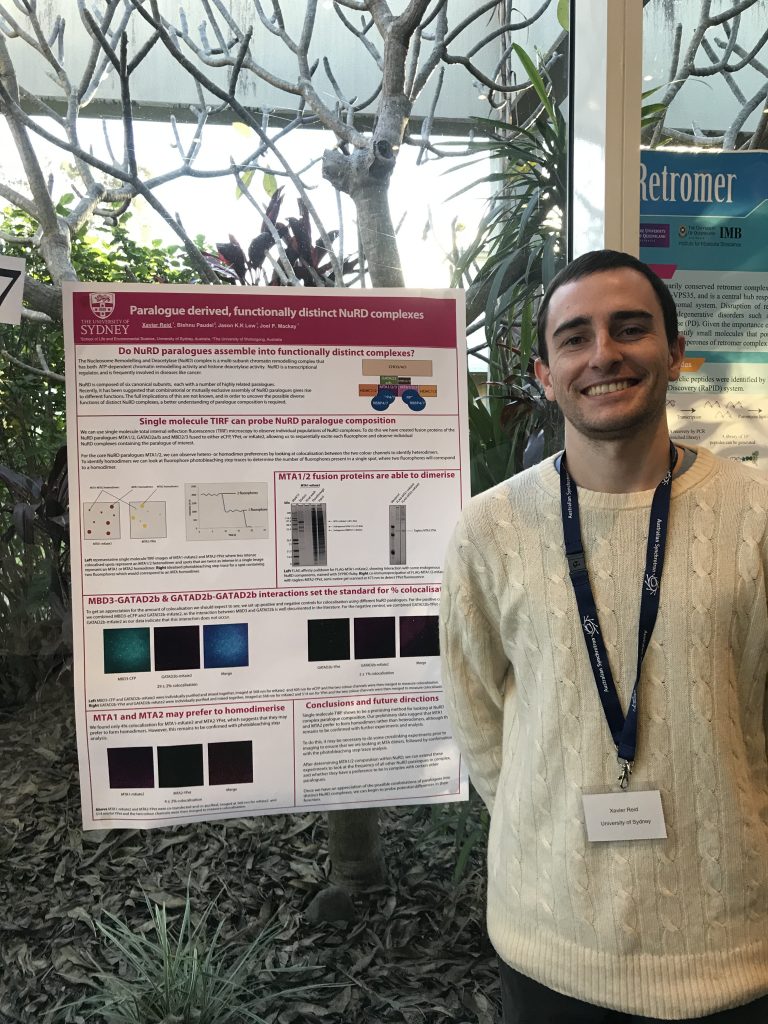
The topic of our latest competition asked the question “Should intelligent robots have the same rights and freedoms that we have?” As robots develop more advanced artificial intelligence empowering them to think and act like humans, do our legal standards need to change? Some of our participants argued that only those who have living and independently viable human bodies are worthy of moral consideration. Others raised concerns with the advent of ‘deep learning’ and the use of algorithms by their creators as a covert way to absolve themselves of responsibility. Some believe a potential AI takeover is imminent where robots will become “an existential threat” to humans – just like in the movies I,Robot and The Terminator. So, by giving AI full human rights, are we quite literally handing AI the key to our own doom? Only the future holds the answers.…
OUR WINNERS
Three entries were selected to receive our award– first prize at $1500 and 2 runners up at $600 each.
Congratulations to our first prize winner, Xavier John Reid, PhD student at the University of Sydney, School of Life and Environmental Sciences working under the supervision of Prof. Joel Mackay.
“I would like to be able to contribute to society as much as possible, and for me the way of doing this that makes the most sense is through research”.
The broad focus of Xavier’s project involves looking into how chromatin remodelling leads to certain genes being turned on or off. In particular, how chromatin remodelling complexes like the Nucleosome Remodelling and Deacetylase complex achieve substrate specificity through a combination of switching out paralogous subunits, and recognition of particular post translational modifications on histone proteins. Ultimately this will allow better understanding of how aberrant behaviour of these complexes leads to a variety of diseases.
Xavier plans to use his prize to attend either Lorne Proteins 2021 or ComBio 2022 depending on the COVID-19 situation, where he can learn more about the wider fields surrounding his project.
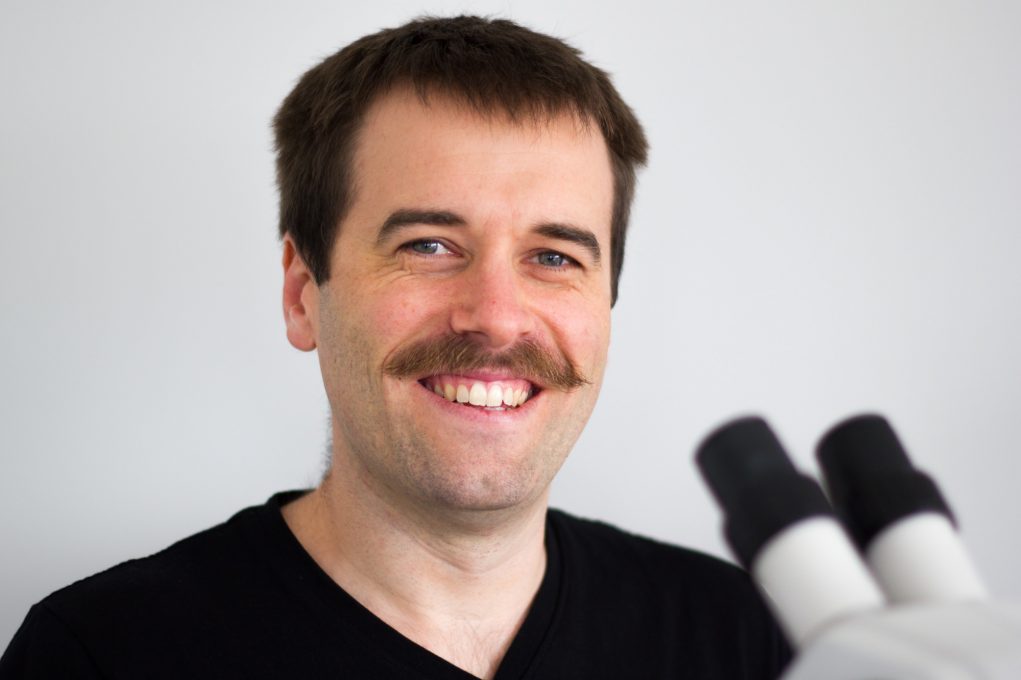 Congratulations to our runner up, Tom Saunders, PhD student at the University of Auckland, School of Biological Sciences in New Zealand. Tom is working under the supervision of Associate Professor Greg Holwell, and Dr Gonzalo Avila from Plant & Food Research.
Congratulations to our runner up, Tom Saunders, PhD student at the University of Auckland, School of Biological Sciences in New Zealand. Tom is working under the supervision of Associate Professor Greg Holwell, and Dr Gonzalo Avila from Plant & Food Research.
“I plan to spend the award on a biocontrol-related conference in 2021, such as the second International Congress of Biological Control (ICBC2) in Davos, Switzerland. I’m looking forward to meeting other biocontrol researchers and forging international collaborations. This would certainly help my research and my career enormously”.
Tom’s research focuses on improving the way classical biological control agents are screened for their risks to non-target species before they are released. Tom is using chemical ecology to understand why a biocontrol agent will attack some species and not others, and in particular, how volatile compounds associated with different hosts mediate this host-specificty. His case study is Trissolcus japonicus (or the samurai wasp), the most promising natural enemy of the brown marmorated stink bug, which is a devastating crop pest invasive in Europe and North America, and likely to spread to other regions in the near future. Tom is investigating how the samurai wasp will respond to the stink bug fauna in New Zealand if it were to be introduced there. Tom would like to continue research in this area after his PhD and in the future, be involved in the sustainable development of horticulture in different regions.
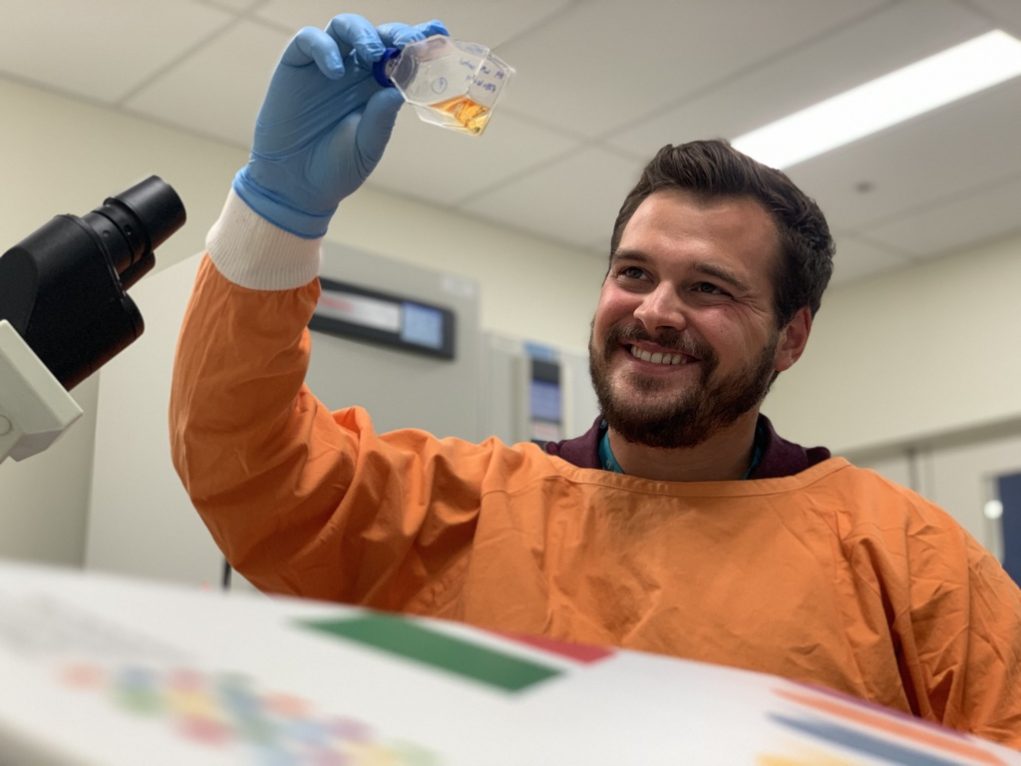 Congratulations to our runner up, Cameron McKnight, 3rd year PhD student based at the Murdoch Children’s Research Institute (MCRI) in the Brain and Mitochondrial Research group, studying under Dr Ann Frazier, Prof. David Thorburn, and Dr David Elliott.
Congratulations to our runner up, Cameron McKnight, 3rd year PhD student based at the Murdoch Children’s Research Institute (MCRI) in the Brain and Mitochondrial Research group, studying under Dr Ann Frazier, Prof. David Thorburn, and Dr David Elliott.
Cameron is using human pluripotent stem cell (hPSC) models to study mitochondrial disease, a group of complex inherited genetic disorders that affect 1 in 5000 live births by adversely impacting cellular energy generation. Despite a number of treatments showing therapeutic promise, none are currently certified for clinical use in mitochondrial disease. To address this issue, Cameron has genetically engineered a panel of hPSC models that mimic mutations known to cause mitochondrial disease in patients. Using disease relevant human heart muscle cells generated from his cell lines, Cameron is performing high-throughput drug screens with several promising compounds. This work could provide the preliminary evidence needed to support a personalised medicine approach to mitochondrial disease by linking targeted therapies to specific genetic causes.
“This award will allow me to make the most of the current situation while working from home, financing subscriptions to Adobe Cloud and BioRender as I use this time to develop some new technical skills and generate figures for my thesis. These funds will also help support my registration fees for EuroMit next year. Although the meeting has been pushed to 2021, I am excited to be able to share what will be my completed PhD work at the largest mitochondrial conference in the world!”
We would like to thank all those that participated. The next Encouragement Award will be posted on our website soon.
For more information or to stay informed of other upcoming promotions please ‘Like us” on Facebook or contact us.
Contact usAnnouncing our winner Ms Pritam Sharma recipient of our $2000 SPIN to WIN prize during ICONN2020
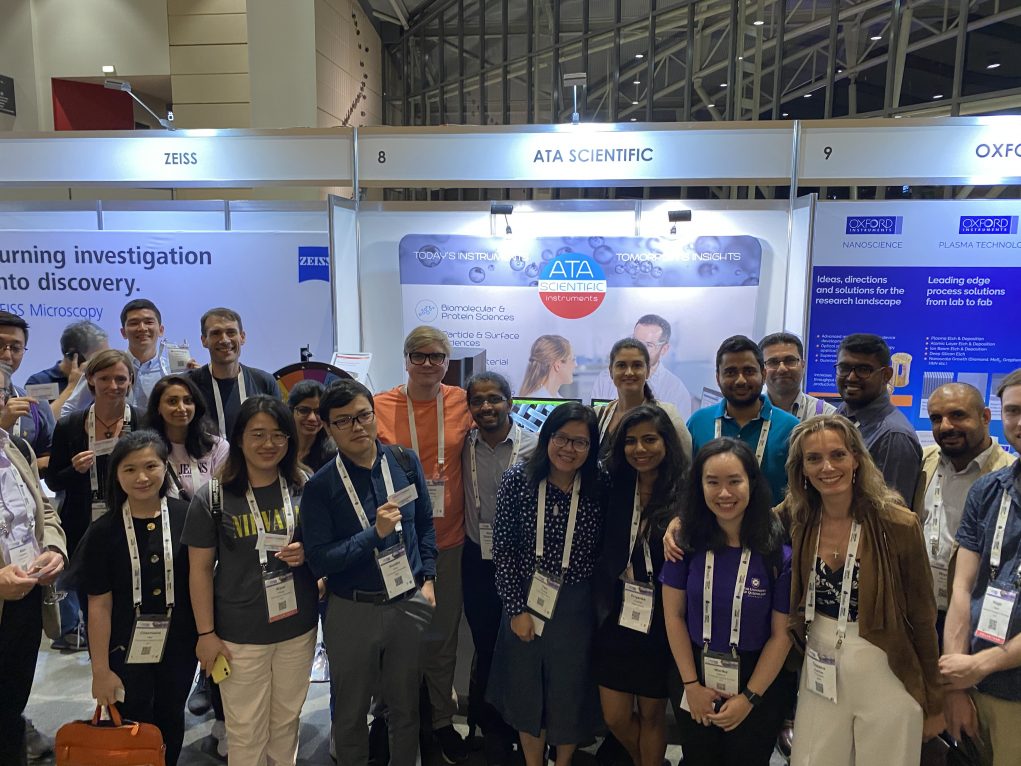 Our annual ‘SPIN TO WIN” Young Scientist competition was hosted during the 8th International Conference on Nanoscience and Nanotechnology (ICONN 2020), held at the Brisbane Convention Centre, 9-13 February 2020. Featuring a diverse array of multidisciplinary talks, the meeting connected world leading scientists, students and industry participants working in the field of nanoscale science and technology and facilitated discussions of new and exciting advances.
Our annual ‘SPIN TO WIN” Young Scientist competition was hosted during the 8th International Conference on Nanoscience and Nanotechnology (ICONN 2020), held at the Brisbane Convention Centre, 9-13 February 2020. Featuring a diverse array of multidisciplinary talks, the meeting connected world leading scientists, students and industry participants working in the field of nanoscale science and technology and facilitated discussions of new and exciting advances.
This year we invited all delegates that visited our trade booth the opportunity to participate in our spinning wheel competition. We offered a number of different prizes including timers, pens and wireless chargers, but the most appealing prize on the board, as expected, was our $2000 Young Scientist Award. The crowd’s energy intensified with anticipation after a number of participants progressed through to the final round. Cheers and gasps filled the room as everyone who had gathered supported one another until finally the winner was announced!
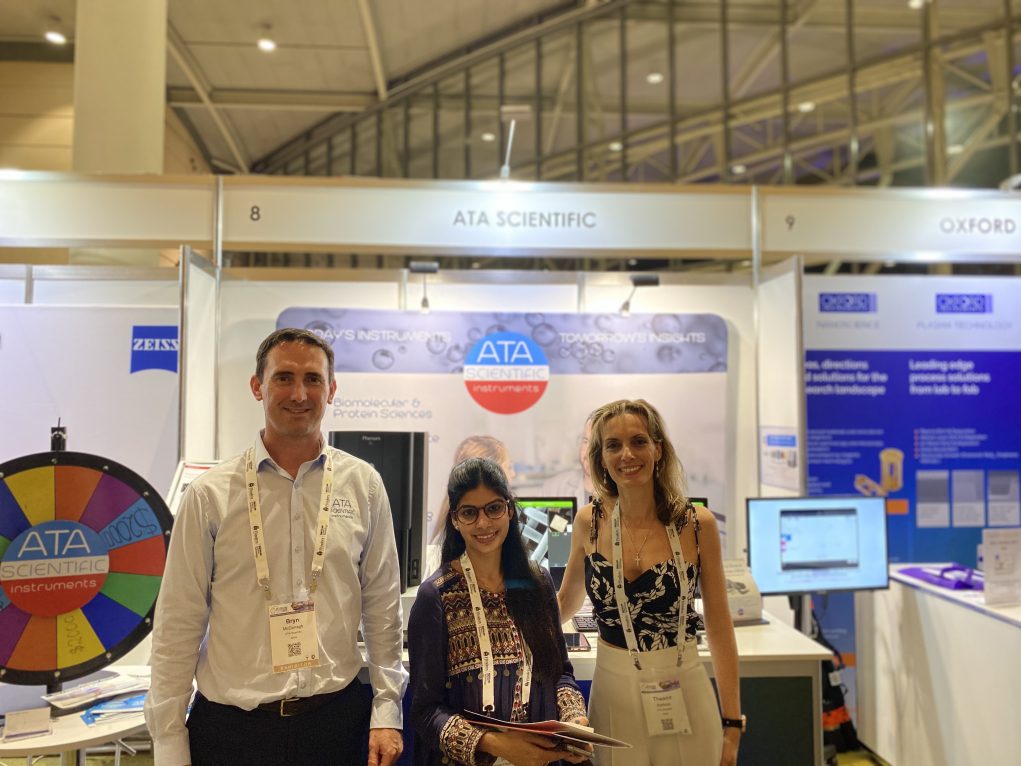 Congratulations to Ms Pritam Sharma – winner of the $2000 ‘Spin to Win’ Prize!
Congratulations to Ms Pritam Sharma – winner of the $2000 ‘Spin to Win’ Prize!
Pritam Sharma is a research student at The University of Western Australia, part of the Microelectronics research group working under the supervision of A/Prof Adrian Keating.
The group focuses on porous silicon and it’s use as a platform to create micromachined sensors. The porous nature of the films created allows the optical, electrical, thermal and mechanical properties of these films to be engineered. Current focus is on achieving a better understanding of the suitability of this material to be used in next generation thermal imaging sensors, which can be operated at room temperature. As the structural material and the release layer are all based on silicon, many of the material compatibility issues associated with multi-material systems and sensors can be avoided.
This award will help Pritam further her research training and improve dissemination of the concepts that she is currently working on.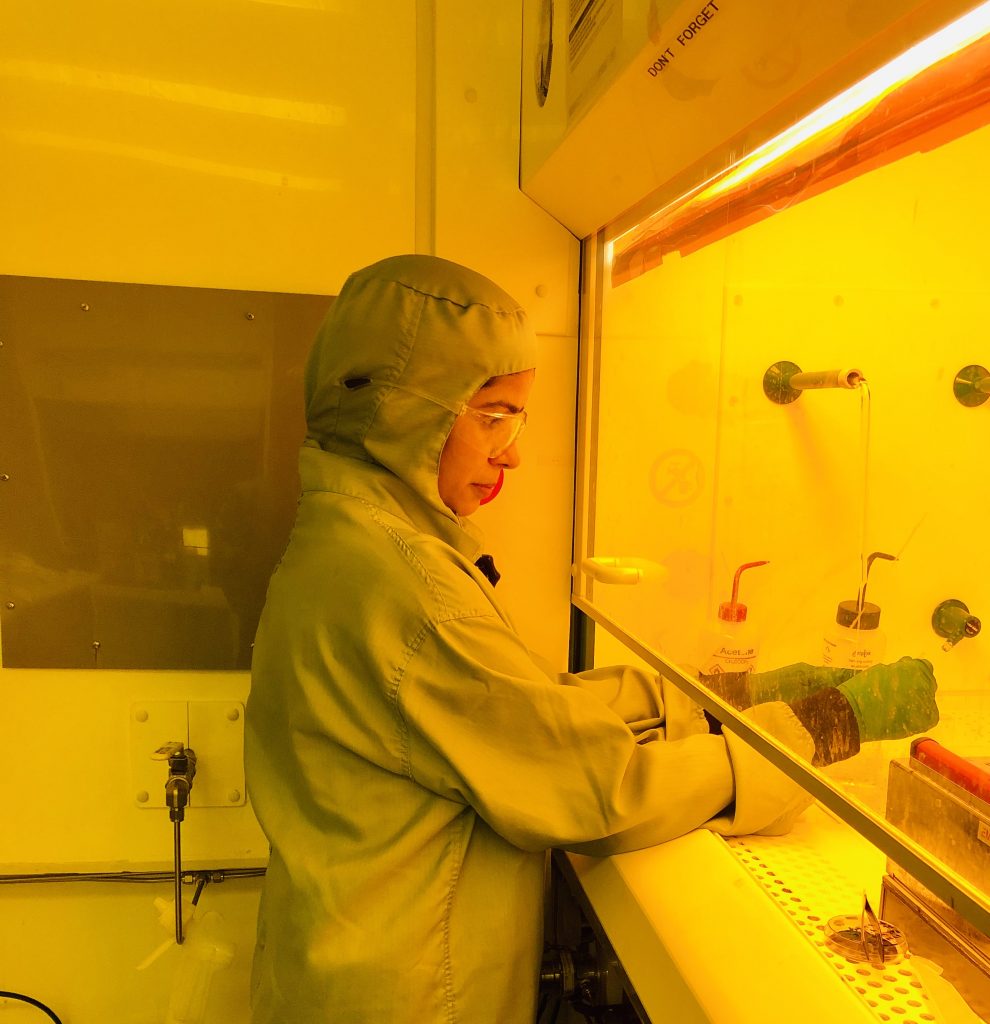
“Ultimately, getting our students and our projects better known in the research community, helps us as a group to develop a stronger reputation, which assists with drawing in high caliber students who can take the work further, and provides the potential for additional funding support” said A/Prof Adrian Keating.
This award will support Ms. Pritam Sharma to attend Prof. Sailor’s summer school for Silicon nanotechnology at UCSD to further to develop skills in the field of both nanotechnology and Porous Silicon. More than just technical skill development, this is an excellent networking opportunity for Ms. Sharma as Prof. Sailor is extremely well known in the area of porous silicon.
The SPIN to WIN award is part of the ATA Scientific Encouragement award program that started in 2011. The intent is to provide scientists access to financial assistance to enable them to collaborate with peers at scientific meetings and to launch their careers within their field of study. The awards are run at least four times a year which has so far awarded over 60 winners from multiple Universities and research organisations around Australia and New Zealand. We plan to continue posting these awards into the future and encourage all students to enter. 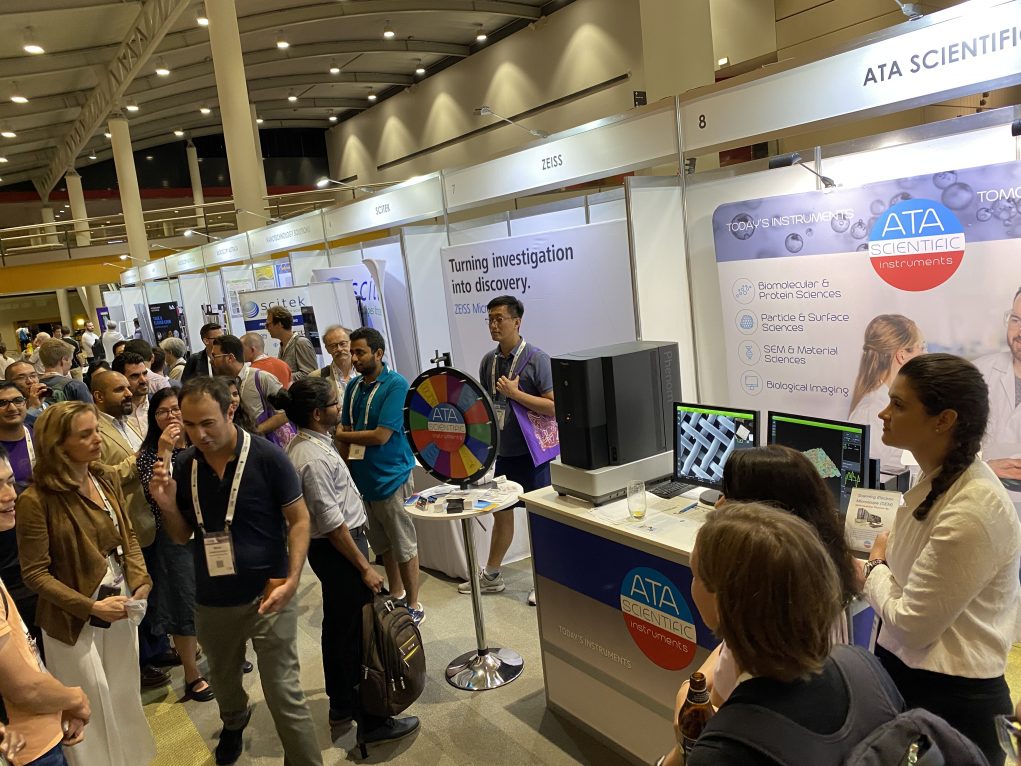
For more information regarding our award or to enter the next promotion contact us or visit our webpage at www.atascientific.com.au/awards-events-training/
Contact us
Encouragement Award October 2019
ATA Scientific would like to thank all those that participated in our Oct 2019 Encouragement Award promotion.
The topic of our latest competition focused on Dr Who, a long running BBC Sci-Fi program in which Dr Who uses a time machine called the Tardis to travel back forth in time. Participants were asked to imagine if they could travel back in time, what past scientist/engineer or moments of discovery would they choose to visit and observe and why? We were delighted to receive so many interesting responses, all of which were deserving winners. Each entry was scored based on originality, relevance and level of entertainment.
OUR WINNERS
Three entries were selected to receive our award– first prize at $1500 and 2 runners up at $600 each.

Congratulations to our first prize winner, Martha Alexandra Blank, PhD student at the St Vincent’s Institute of Medical Research, Bone Cell Biology and Disease, working under the supervision of Prof. Natalie Sims and Prof. TJ Martin.
Martha is combining her Bachelor degree in Engineering and Masters degree in Molecular Biotechnology to investigate what makes bone strong and healthy. Martha moved from Austria to Melbourne to study bone biology in one of the world’s leading laboratories for osteology. Martha is currently in the second year of her PhD project, a major aim of which is to find pathways through which bone mineralisation is initiated and regulated, and how it contributes to bone strength in healthy and disease models, to find new approaches to treat bone fragility such as eg. osteoporosis. It is critical to understand how bone mineralisation works in order to uncover new therapeutic strategies, since there are currently no effective treatments to restore a healthy skeleton.
“I will use funding provided by the ATA Scientific Encouragement Award to attend the Australian and New Zealand Bone and Mineral Society conference 2019 in Darwin to present and discuss my latest results and share them with researchers from all around the world. Especially in science, I strongly advocate communication as a powerful, yet under-rated, tool which can lead to amazing new collaborations and approaches for your own projects. It is therefore necessary to regularly attend conferences and workshops to talk to other scientists outside of your laboratory about their work and findings”.
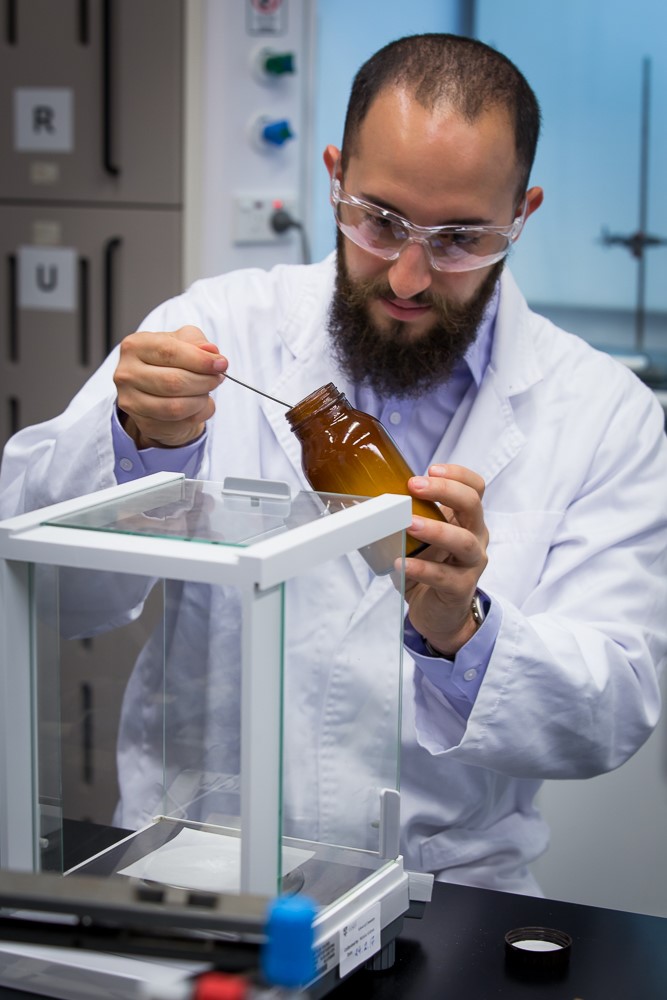
Congratulations to our runner up, Sam Peppou-Chapman, PhD candidate at University of Sydney, School of Chemistry, working under the supervision of A/Prof. Chiara Neto.
Sam’s work focusses on understanding how the many desirable properties of lubricant-infused surfaces arise and how they can be better designed for a given application. Lubricant-infused surfaces are a new class of functional surface that work by trapping a thin liquid layer on the surface. This liquid layer makes the surfaces exceptionally low adhesion and gives them application as anti-biofoiling, anti-icing and self-cleaning surfaces. By developing a novel mapping technique using Atomic Force Microscopy, Sam has been able to track the depletion of these surfaces down to the nanoscale and further understand the forces underlying the stabilisation of liquid on the surface.
Sam plans to use his award to cover costs of attending the Australian Colloid and Surface Science Student Conference (ACIS) conference in Feb 2020.
Congratulations to our runner up, Georgia Sinclair, PhD student at RMIT University, School of Chemistry, working under the supervision of A/Prof. Oliver Jones.
Georgia’s research focuses on the concern over the presence of PFAS (per- and polyfluoroalkyl substances) in ecosystems and the lack of knowledge of the dosage needed to have an adverse effect. The significance of her research will contribute to conclusive biochemical information surrounding the toxicity of PFAS for the world to benefit. Metabolomics is the study of hundreds and thousands of small molecules in all living things such as carbohydrates and amino acids. Her project will employ a metabolomics approach to identify the biochemical pathways affected by a range of PFAS concentrations in model organisms.

Georgia would like to use her award to contribute towards attending the 8th World Congress of the Society for Environmental Toxicology and Chemistry (SETAC) which will be held in Singapore in 2020. The conference will allow Georgia to be exposed to the latest developments in metabolomic and ecotoxicology research and gain valuable experience presenting and communicating my work.
“Ecotoxicology is an area of science that I am very passionate about and want to follow as a career. I would like to contribute to the development of national and international chemical guidelines, either through academia or as a principle scientist in industry”.
We would like to thank all those that participated. The next Encouragement Award is now available to enter here. Entries close 31 March 2020.
For more information or to stay informed of other upcoming promotions please ‘Like us” on Facebook or contact us.
Contact usENCOURAGEMENT AWARD JUNE 2019
ATA Scientific would like to thank all those that participated in our June 2019 Encouragement Award promotion.
The topic of our latest competition focused The Museum of Failure located in Sweden which home to a collection of failed products and services from around the world. The museum showcases these failures (e.g Google’s glasses, Sony’s Betamax, Apple’s Newton Messagepad, BIC for her pens and Trump’s monopoly game) to provide a learning experience and a unique insight into the risky business of innovation. We asked our audience to consider other examples of failures that could possibly be included in this Museum and some of the lessons that we could learn from such an apparent failure.
Once again, we were delighted to receive so many high quality responses, all of which were deserving winners. Each entry was scored based on originality, relevance and level of entertainment.
OUR WINNERS
Three entries were selected to receive our award– first prize at $1500 and 2 runners up at $600 each.

Congratulations to our first prize winner, Stefan Mueller, PhD student at the University of Wollongong, School of Chemistry and Molecular Bioscience, working under the supervision of Distinguished Professor Antoine Van Oijen.
After finishing his B.Sc. degree in Physics, with a research project on the production of ultra-cold neutrons at the Technical University of Munich, Germany, Stefan decided to shift his interests from pure physics to biology. Driven by his curiosity about how life is actually physically possible, he decided to travel to Australia and join Antoine Van Oijen’s lab, where the team applies physical methods to study biological systems. Stefan’s project focuses on DNA replication, the process of copying the genome prior to cell division. This process is vital for every living organism, defects in this process are associated to a number of diseases, including numerous genetic disorders and cancer. By applying single-molecule microscopy Stefan can visualise DNA replication in vitro, one molecule at a time. He is particularly interested in how UV-damage of the genomes can affect this process on the molecular scale.
“The strong urge to understand the fundamental mechanisms of life, but also the belief that such an understanding will eventually lead to new therapies for diseases is why I want to pursue an academic career. The ATA Scientific Encouragement Award provides me funding that I will use to take part in the Cold Spring Harbor Meeting on Eukaryotic DNA Replication & Genome Maintenance this September in New York, and present my work to renowned researchers of my field”.
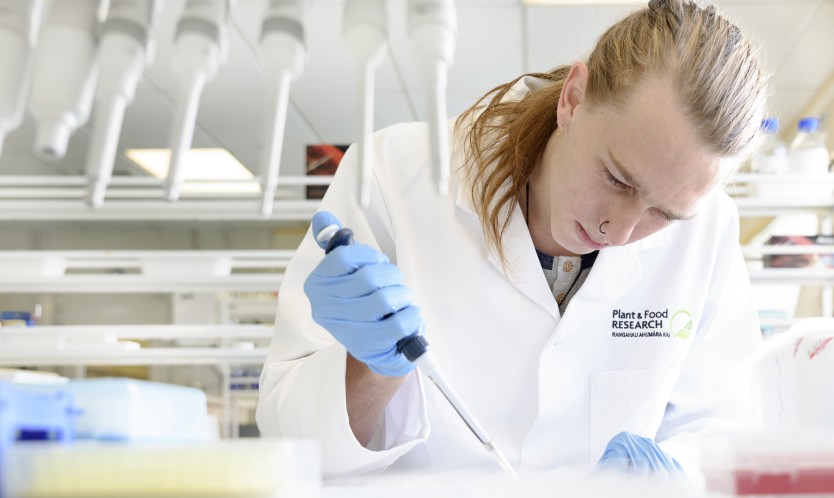
Congratulations to our runner up, Nikolai Macnee, PhD candidate at University of Auckland & Plant and Food Research, working under the supervision of Dr Robert Schaffer and Dr Sean Bulley.
Nikolai is completing his PhD studies on the molecular mechanisms that govern fruit skin formation in kiwifruit. Nikolai is currently approaching the end of his PhD and soon will start a new job which will enable him to continue his developmental plant biology research in the field of medicinal cannabis. Nikolai uses command line programming to assist in data analysis relevant to plant development but would like to expand his abilities into horticultural biotechnology. Nikolai would like to use his award to assist with a personal project aimed at robotic plant growth systems. Although his skills focus on molecular plant biology, he is keen to investigate future growing systems and the production of low-cost robots for growing plants, ideally with the implementation of AI for monitoring.
“It would be a dream to have the funds to prototype my robots, and one day enable others to grow food for themselves even while living busy lives”.
Congratulations to our runner up, Lakshanie Wickramasinghe, PhD student at Monash University, Department of Immunology and Pathology, working under the supervision of Associate Professor Margaret Hibbs.
Her research is focused on understanding the immune mechanisms underlying the development of a severe, yet common lung disease that affects preterm babies known as Bronchopulmonary Dysplasia (BPD). Of particular interest is understanding how it begins in the early neonatal period and how it can lead to long-term damage to vital organs such as the lungs. Lakshanie aspires to become more involved in exploring therapeutics that can reduce, or ultimately prevent premature infants from developing BPD. Lakshanie hopes to be able to use her immunological and scientific knowledge to better understand the mechanisms of action of these therapeutics in the body. Along with this, Lakshanie also hopes to help improve maternal and neonatal healthcare in Asian and African countries where mortality rates for preterm infants are unacceptably high. Often this is due to limited access to resources and rapid management strategies that can improve preterm birth outcomes. This kind of care is essential to all mothers and babies, and Lakshanie hopes to be a part of the process of making essential pre- and postnatal care more accessible worldwide.
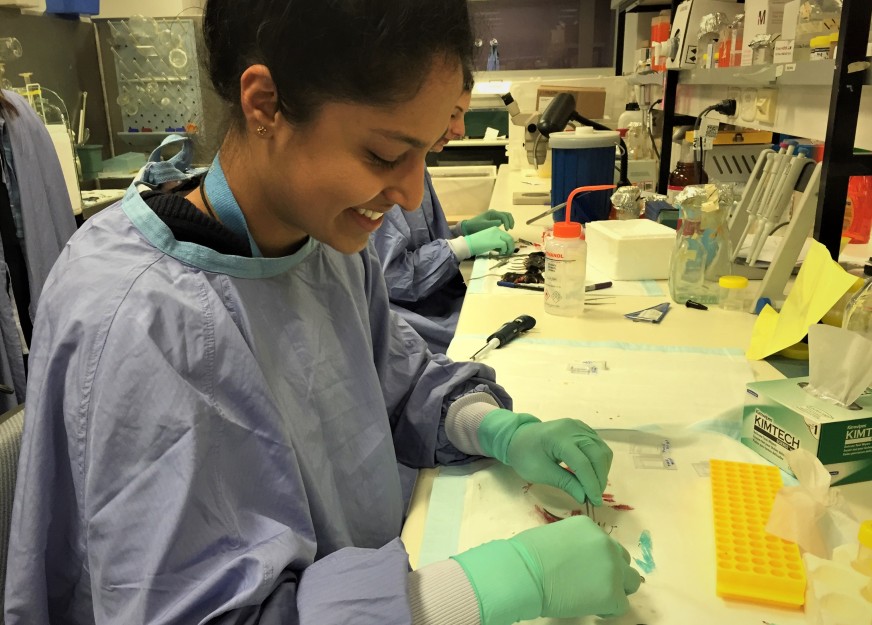 Lakshanie will be using her award to contribute to the cost of registration and attendance for the Fetal and Neonatal Physiological Society conference, 16 – 19th October 2019 in Marysville, Victoria.
Lakshanie will be using her award to contribute to the cost of registration and attendance for the Fetal and Neonatal Physiological Society conference, 16 – 19th October 2019 in Marysville, Victoria.
“By attending this conference it will give me to opportunity to hear about current research being undertaken by scientists in the field around the world. It will also give me the opportunity to share my own research with others which may lead to fantastic collaborations in the future”.
We would like to thank all those that participated. The next Encouragement Award will be posted on our website here.
For more information or to stay informed of other upcoming promotions please ‘Like us” on Facebook or contact us.
Contact us
ENCOURAGEMENT AWARD NOVEMBER 2018
ATA Scientific would like to thank all those that participated in our Oct-Nov 2018 Encouragement Award promotion.
The topic of our latest competition focused on the possible existence of a highly advanced extra-terrestrial civilisation observing us on earth and whether they should impose on us a fair and sustainable civilisation or keep well away. While Hollywood might have led us to think that an alien encounter would be greeted with guns and missiles, many of our applicants felt that in reality we humans would act in a far more positive manner. In fact a new study has supported this view and proposed “if we find out we’re not alone, we’ll take the news rather well”. Ultimately the mere fact that we’ve endeavoured to send a record of our presence into space (NASA’s Golden record launched in 1977) shows something about our humanity.
Once again, we were delighted to receive so many high quality responses, all of which were deserving winners. Each entry was scored based on originality, relevance and level of entertainment.
OUR WINNERS
Three entries were selected to receive our award– first prize at $1500 and 2 runners up at $600 each.
Congratulations to our first prize winner, Miss Caroline Holley, second year PhD student at the Institute of Molecular Bioscience, University of Queensland working under the supervision of Associate Professor Kate Schroder.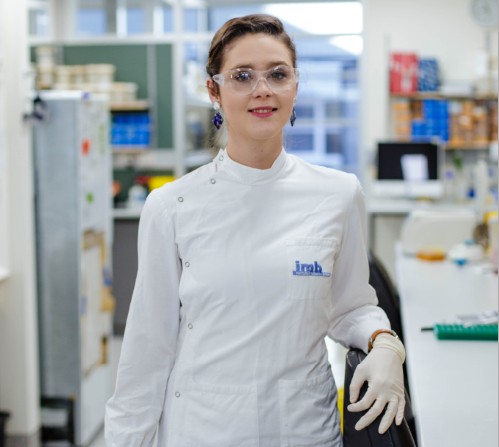 “Being curious about the natural sciences from an early age, it was inevitable that I would eventually end up in research. I became fascinated with how our bodies defend themselves against pathogenic infection and joined A/Prof. Kate Schroder’s lab to develop my knowledge in this area”.
“Being curious about the natural sciences from an early age, it was inevitable that I would eventually end up in research. I became fascinated with how our bodies defend themselves against pathogenic infection and joined A/Prof. Kate Schroder’s lab to develop my knowledge in this area”.
Caroline’s project is focused on the inflammasome, which is the major driver of many neuro-inflammatory diseases (e.g. Alzheimer’s and Parkinson’s disease). Research in this area is becoming increasingly important given our aging population and an increase in lifestyle-related disease across the world (such as neurodegeneration, diabetes and persistent pathogenic infections). Current therapeutics for these diseases focus on stabilising the cognitive symptoms, but do not prevent further neuronal damage. The aim of Caroline’s project is to elucidate the role of mitochondria in inflammasome signalling, and use this knowledge to control inflammation in mouse models of neuro-inflammation. Eventually Caroline hopes to apply her research to patients living with chronic inflammatory diseases.
In addition to her PhD lab work, Caroline is an active member of her student society’s executive, and has coordinated several career development and social events for her fellow PhD students this year.
Caroline plans to use her award to present her research at the Lorne Infection & Immunology Conference in Melbourne (http://www.lorneinfectionimmunity.org) and the ASI Annual Scientific Meeting in Adelaide (http://www.immunology.org.au) next year.
“These conferences attract many domestic and international immunology heavyweights, and I’m so excited to broaden my network and collaborations. This will undoubtedly be invaluable for my post-PhD prospects, as I hope to secure a postdoctoral position in Germany after my thesis is accepted”.
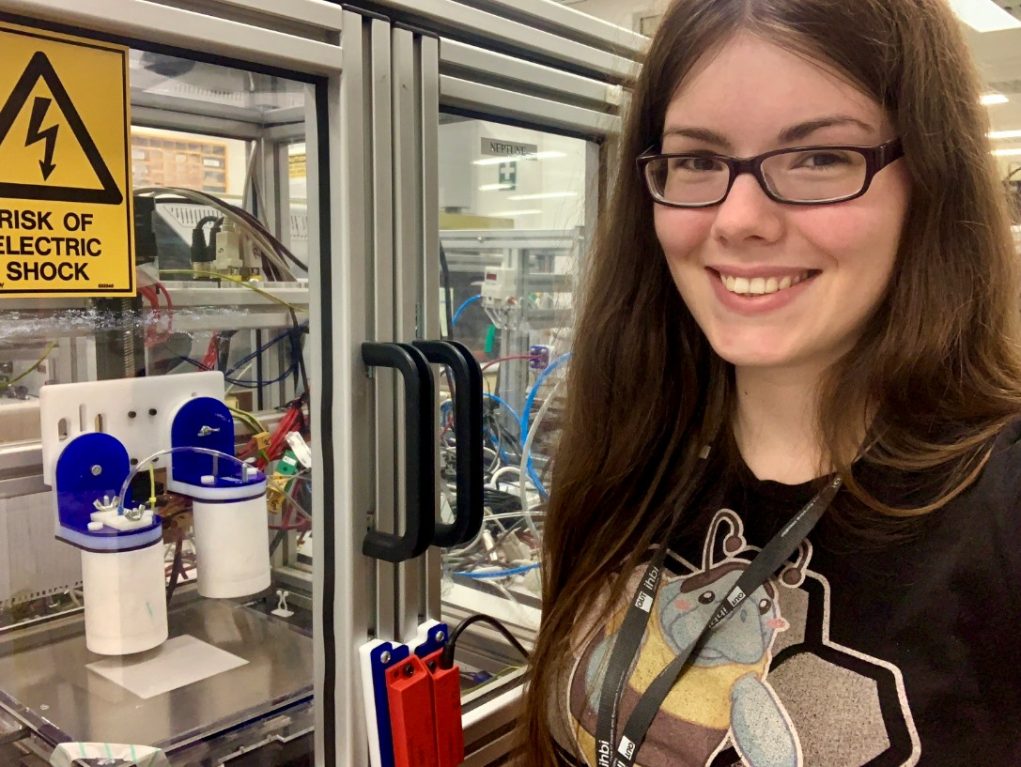
Congratulations to our runner up, Ms Sabrina Schönborn, international Master student at the Institute of Health and Biomedical Innovation, Queensland University of Technology, working under the supervision of Dr Elena M. De-Juan-Pardo.
Sabrina is originally from RWTH Aachen, Germany and currently working at IHBI in the Regenerative Medicine Group as part of her Master Thesis. The team that Sabrina works with is attempting to develop a tissue engineered heart valve replacement using Melt Electrospinning Writing (MEW). In the photo attached Sabrina is standing next to one of the MEW machines in her lab being used to develop the new heart valve. Sabrina’s project is mainly focused on creating a scaffold for a replacement of the aortic root which encloses the aortic valve. Following her graduation, Sabrina would like to continue her career in research and development working with medical products, preferably implants.
Sabrina plans to use the prize money to attend the Australia-China Conference of Tissue Engineering and Regenerative Medicine (ACCTERM), November 22-24, 2018 being held in Cairns this year.
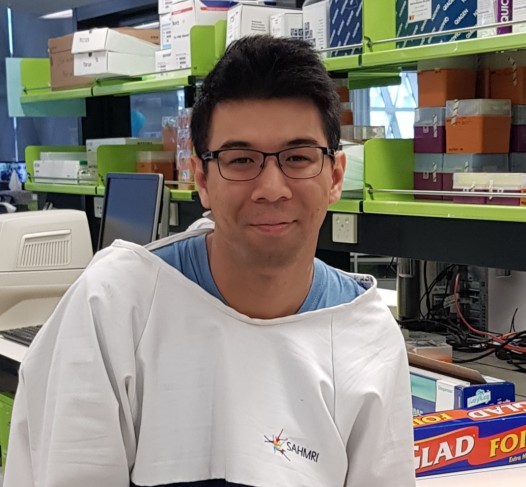 Congratulations to our runner up, Mr Terence Tieu. Terence is a joint PhD candidate between Monash University and CSIRO, working under the supervision of Dr Anna Cifuentes-Rius, Dr Helmut Thissen and Prof. Nico Voelcker.
Congratulations to our runner up, Mr Terence Tieu. Terence is a joint PhD candidate between Monash University and CSIRO, working under the supervision of Dr Anna Cifuentes-Rius, Dr Helmut Thissen and Prof. Nico Voelcker.
His research is focused on the development of Nano carriers, namely, porous silicon nanoparticles for efficient delivery of oligonucleotides.
The award will be used to contribute towards the costs of attending the Controlled Release Society conference in Valencia, Spain next year where he aims to share his research with an international audience.”
We would like to thank all those that participated. The next Encouragement Award will be posted on our website early 2019.
For more information or to stay informed of other upcoming promotions please Follow us on Facebook or contact us.
Contact us



 02 9541 3500
02 9541 3500